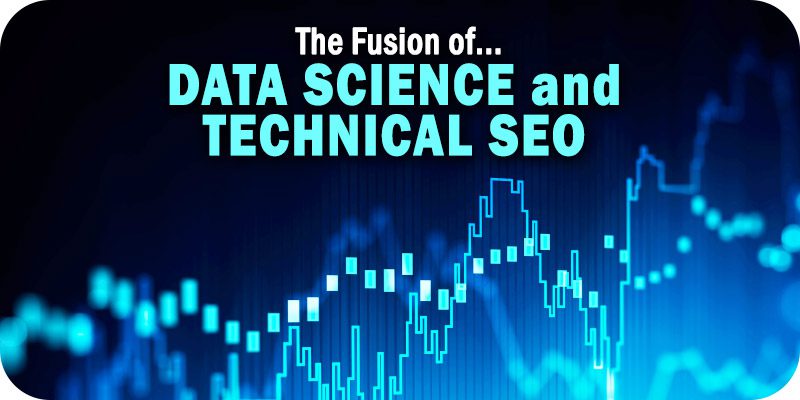The Fusion of Data Science and Technical SEO


As part of Solutions Review’s Contributed Content Series—a collection of contributed columns written by industry experts in maturing software categories—Lemuel Park, the co-founder and chief technology officer at BrightEdge, delves into the necessary crossovers between data science and technical SEO.
We live in a world of unprecedented data storage, collection, and analysis. But the incredible volume of data is nothing without a clear understanding of its insights. According to IDC, the data revolution is just beginning. A recent report shows that by 2025, the world’s population will generate 175 zettabytes of data—more than double the data produced this year.
With this significant increase in available data, modern businesses must prioritize adopting the appropriate tools to process complex information streams effectively. Business leaders should review their organization’s existing tech stack and focus on keeping and seeking out tools that turn data into insights. After all, what’s the point of collecting copious amounts of meaningless data?
Data can be a marketer’s biggest asset. However, marketers can easily make mistakes with data. Some common data mistakes include overlooking the impact of offline activity, focusing on the wrong KPIs, and not incorporating backend data.
Marketers need to reexamine how they use data in an ever-expanding consumer world—and SEO could be the key. The challenge is that voluminous data also translates to equally nuanced and complex SEO. But leading search marketers will view this challenge appropriately as an opportunity to re-think the correlation between SEO and data science and provide their team with an entirely new layer of data-based insights.
How Data Shapes Modern SEO Strategies
The pandemic accelerated digital transformation across all industries by about ten years. As a result, many businesses were left to play catch-up with their tech stacks and digital-first experiences.
Technical SEO advanced alongside digitizing businesses. For example, the pandemic saw the announcement and implementation of Google’s Core Web Vitals, an update that combs and ranks webpages based on characteristics like readability, format, and load time. In response to this change—which was fully rolled out just recently—SEO marketers have been tasked with improving their company’s position on search engine response pages (SERPs) using code-vetting tools that emulate Google’s new approach to web scoring.
Statistical analysis and complete data access to this degree provide marketers with valuable information about their brand’s search engine performance and consumer behavior, which can be erratic at best. McKinsey reported that 75 percent of U.S. post-pandemic consumers are trying a new shopping behavior for several reasons, including economic pressures, store closings, and changing priorities.
Data helps marketers predict future trends by identifying threats and opportunities through business insights. These effects can optimize a marketing team’s performance and ripple through an organization, like new product ventures and increased revenue.
With new updates, marketers can use new data streams to assess the health of their brand’s webpage and SEO performance. This gives marketers the flexibility they need to adjust to ever-evolving consumer expectations. And the quicker marketers leverage data and technical SEO together, the sooner they can create search standards and the more reliable their insights will be.
Process SEO Data like a Data Scientist
Examining large amounts of data may feel overwhelming for marketers with little to no professional science background to speak of. But data-backed decision-making is vital to all business decisions, including marketing ones. So how can marketers remedy their lack of experience with a critically modern need to process unprecedented data?
SEO marketers must look to AI and machine learning (ML) driven tools. Marketers are empowered to leverage previously obscured insights when data science is the primary driver behind a tech stack. And the right tool will accomplish these complex tasks in record time, combing through millions of data points in minutes or even seconds.
Access to robust data analysis tools will prove incredibly useful when analyzing search engine spiders or bots. The bots aim to explore a page’s content, find links, and code that translates a page’s relevance to specific search queries. Website errors that cause a bot to have problems and leave out important content in its analysis include broken links or unintended permission issues. As a result, web pages will rank lower in search results than they deserve.
SEO marketers should analyze web logs that track every unique webpage interaction to prevent these low rankings. The large amount of interactions compiled by weblogs creates complex data. This data is so complex that human SEO marketers cannot manually analyze it without dedicating hours or days. Fortunately, AI acts as a log file analyzer, sorting through countless files to identify bot interactions that may impact search engine rankings. Once a log file analyzer identifies an issue, SEO marketers can create a solution, instantly improving the brand’s web performance.
Technical SEO processing tools can also be applied to data-based marketing initiatives like A/B testing. AI and ML processing tools significantly improve the accuracy of predictive analytics by conducting all possible scenarios to the fullest extent, thereby improving marketers’ confidence in any given outcome. This also frees an increasingly crucial resource for marketers: time.
Data Science Marketers of the Future
Many SEO marketers unintentionally miss out on their data’s intent-based insights because they’re intimidated by the complexity of the information. Optimizing AI and ML tools allows marketers to bridge this gap in understanding and improve data-based insights across all digital channels. This strategy also allows marketing teams to optimize content for scale—even with a significant shift in consumer behavior or technology.
As data streams become more complex, marketers must adjust to SEO trends to keep their marketing efforts ahead of the game. Marketers of the future must have a data science mindset and embrace the insights from all data analysis tools. But that doesn’t mean SEO marketers need to secure an engineering or data science degree—it just means they’ll need to turn inward and review their current tech stack to ensure they’re operating both efficiently and competitively as SEO further complicates.




















